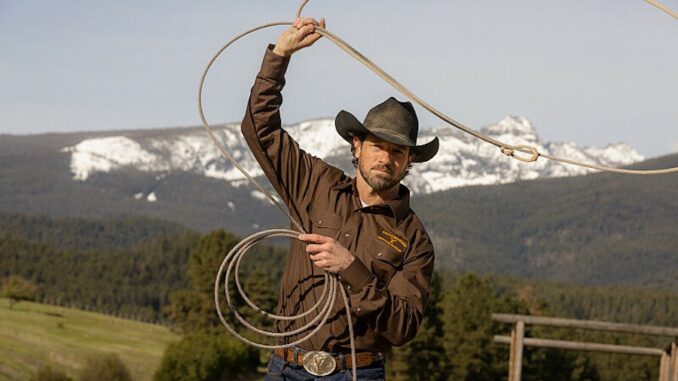
The sprawling, sun-baked canvas of the Yellowstone Dutton Ranch is more than just a setting; it is the beating heart of a modern American saga, a realm where legacy, land, and loyalty collide with the relentless march of progress. At its very epicenter stands John Dutton, portrayed with an iconic, weathered gravitas by Kevin Costner. He is the last grizzly of his kind, a patriarch fighting for his family’s inheritance with every fiber of his being. The crafting of this epic, its very soul, has been inextricably linked to the singular creative force of Taylor Sheridan. When the prompt speaks of “Series Creator Sheridan Costner’s Exit Truncates Closure for John Dutton,” it encapsulates a profound narrative disruption, not merely the departure of an actor, but the unraveling of a carefully woven tapestry, leaving the saga’s central figure adrift, his destined conclusion unjustly abbreviated.
John Dutton is not simply a character; he is an archetype, a living embodiment of the struggle to preserve tradition in a world desperate to erase it. Taylor Sheridan, as the architect of this universe, breathed life into Dutton’s stoic defiance, his moral ambiguities, and his deep, often silent, love for his land and his deeply flawed family. Every episode was a chapter in Dutton’s fight: against developers, against politicians, against his own children’s rebellions, and against the creeping realization of his own mortality. Kevin Costner, in turn, didn’t just play John Dutton; he became him. His gravelly voice, the tired wisdom etched into his eyes, the subtle shifts from authoritarian rage to profound vulnerability – these were the brushstrokes that painted a deeply complex figure. The synergy between Sheridan’s words and Costner’s portrayal created an unbreakable bond, making the character and his journey inseparable from the show’s very identity.
The concept of “closure” for a figure as monumental as John Dutton is not a trivial matter. It would entail a resolution to the life-long war he has waged. Would he die on the land he so fiercely protected, a final sentinel? Would he pass the torch, however begrudgingly, to a worthy heir? Would he find a moment of peace, perhaps reconciling with his estranged son Jamie, or truly securing the ranch’s future through some grand, definitive act? His journey has been fraught with sacrifice, betrayal, and violence, often self-inflicted for the sake of his legacy. A fitting end for John Dutton would need to reflect the weight of these choices, offering either redemption, a poignant tragedy, or a hard-won, albeit bittersweet, victory. It would require the careful winding down of narrative threads, the payoff of years of character development, and a final, resonant statement about the enduring spirit of the American West.
This is precisely where the “exit” of “Sheridan Costner” becomes a narrative wound. The departure, whether born of creative differences or scheduling conflicts, fundamentally truncates this organic trajectory. It forces Sheridan, the storyteller, to pivot, to scramble, to rewrite a destiny that was likely already mapped out in his mind. The final acts intended for John Dutton can no longer be delivered as envisioned, because the vessel through which they were to be conveyed is no longer present. This isn’t merely a character being written out; it’s the amputation of a story’s core limb. The abruptness denies the character the dignity of a fully earned ending, denying the audience the satisfaction of witnessing the conclusion of a deeply invested journey.
The truncation manifests in several ways. Firstly, it sacrifices narrative authenticity. Any new plot devices introduced to explain Dutton’s absence or bring his story to a premature close will likely feel artificial, betraying the natural flow of the character’s arc. Secondly, it leaves critical questions unanswered and relationships unresolved. What becomes of the ranch’s ultimate fate without its grizzled oak at the helm? How will Beth and Jamie’s venomous feud reach a conclusion when their primary catalyst and shared tormentor is gone? John Dutton’s influence permeates every corner of the Yellowstone universe; his sudden, unscripted removal creates a vacuum that even the most talented writer will struggle to fill without a palpable sense of loss.
Ultimately, the exit of “Sheridan Costner” represents more than just a logistical challenge for a television production; it is a profound artistic compromise that strips John Dutton of his proper narrative closure. It leaves the audience with a sense of incompleteness, a lingering question mark hanging over the sprawling plains of Montana. The saga of the Duttons, a testament to enduring will and tradition, will forever bear the mark of this abrupt halt, a reminder that even the most monumental sagas can be cut short, leaving their most iconic figures to fade into an ambiguous horizon, denied the full, resonant conclusion they so richly deserved. The echoes of John Dutton’s unfinished fight will undoubtedly resonate, a poignant testament to a story tragically truncated, a legacy left without its final, defining chapter.
